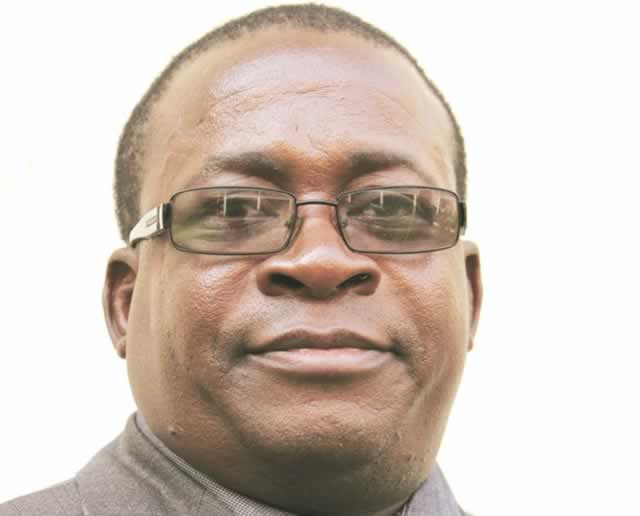Govt lifts chrome ore export ban

Conrad Mwanawashe Business Reporter
GOVERNMENT has lifted the ban on chrome ore exports and scrapped the 20 percent export tax on the mineral in a move expected to improve viability of miners, create thousands of jobs and improve revenue inflows for the fiscus, a Cabinet minister announced.
The Government also raised royalty fees for chrome ore to 5 percent from 2 percent, Mines and Mining Development Minister Walter Chidhakwa said yesterday.
The ban on chrome exports was imposed in April 2011 to encourage beneficiation of the mineral.
“The ban on the export of chrome ore negatively affected all small-scale (artisanal) chrome ore producers, who lost their economic ventures and livelihoods,” said Minister Chidhakwa during a Press conference also attended by his Finance and Economic Development counterpart Patrick Chinamasa.
“In addition, the ban on the export of chrome ore did not create opportunities for smelters to invest in new technology for expanded value addition and beneficiation.
“In addition, in order to assist chrome ore producers to operate viably (and) to allow them to create investment capacity in smelting, Government decided to reduce electricity tariffs from eight cents to 6,7 cents per kilowatt hour for chrome ore producers. Zesa shall implement the approved electricity tariff with immediate effect.”
Eight of the 12 companies in chrome ore smelting are expected to resume operations soon as a result of the new measures by Government while more than 2 000 jobs are expected to be created immediately for the mining of chrome ore.
Additional thousands of jobs are expected to be created in the downstream industries which include transport, smelting and beneficiation.
“The optimum production, smelting and export of chrome ore would result in major producers such as Zimasco being able to generate income for expanding their smelting capacity.
“The economic livelihoods of small-scale producers would also be restored and revenue to Government would be boosted through royalty fees payments and other taxes such as corporate tax and PAYE,” said Minister Chidhakwa.
The 2011 ban on exports was not the first as Government in 2007 suspended raw chrome exports before lifting the ban in 2009.
Minister Chidhakwa said after lifting the ban on exports in 2009, the chrome sub-sector continued to experience challenges such as lack of effective accounting framework for chrome ore volumes and values that were being exported to Maputo Port, lack of a well-co-ordinated administration and monitoring framework for production, marketing and export of chrome ore and environmental degradation that resulted from uncontrolled mining of chrome ore.
In light of these challenges and in an effort to encourage local beneficiation and value addition of chrome ore, Government again imposed a ban on the exportation of chrome ore in April 2011.
Minister Chidhakwa said, however, the ban did not result in additional smelting operations of chrome ore due to lack of efficient and modern technology for processing chrome ore to ferrochrome; falling international prices of ferrochrome to sub-economic levels and high electricity tariffs.
Minister Chidhakwa said the latest move is aimed at enabling chrome ore producers to mobilise financial resources for capitalisation to invest in modern technology in smelting.
In lifting the ban on the export of chrome ore, Government has taken into account available chrome ore production capacity which is estimated at 1,5 million metric tonnes per year, limited smelting capacity at 455 200 metric tonnes per year; available rail transportation capacity at National Railways of Zimbabwe to port estimated at over one million metric tonnes per year.
Government also took into consideration available road transportation capacity at NRZ and other transporters.
“There is currently excess capacity for NRZ’s Road Motor Services which is currently underutilised and NRZ is desirous to put its transport fleet to full use through chrome ore movement,” he said.
Minister Chinamasa said Government was working on capacitating the NRZ.
“We have to mobilise resources to restore NRZ to what it used to be. It used to carry 18 million tonnes of cargo, now it’s carrying around three to four million tonnes.
“Already efforts are underway with the Ministry of Transport to make sure that NRZ is capacitated,” said Minister Chinamasa.
Under the new policy regime, all the 12 chrome ore producers already in ferrochrome smelting and a Special Purpose Vehicle established by Government shall be registered with the Ministry of Mines and Mining Development to export excess chrome ore.
However, in order to encourage greater participation by small-scale producers, a well-monitored purchase and sale structure would be put in place by the Minerals Marketing Corporation of Zimbabwe in due course.
All exports of chrome ore shall be conducted under the auspices of the MMCZ and facilitated by the Reserve Bank of Zimbabwe and the Zimbabwe revenue Authority.









Comments